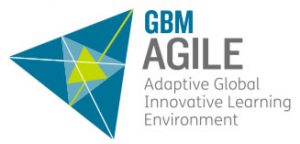GBM AGILE – Changing the Way We Fight Brain Cancer
GBM survival rates have not improved in any meaningful way in over 30 years despite desperate efforts.
Glioblastoma Multiforme, referred to simply as GBM, is the deadliest type of brain cancer. GBM is widely regarded as incurable and universally fatal, killing 95% of patients within five years of diagnosis. It is a fast-acting cancer that attacks cells meant to support the health of nerve cells within the brain. GBM survival rates have not improved in any meaningful way in over 30 years despite desperate efforts. For years, researchers tried and failed to even come close to finding a potential cure for this disease. Each clinical trial required participation from GBM patients for the better part of a decade. Unfortunately, for a fast-acting and rare disease like GBM, the time required for a successful clinical trial is rarely feasible. Years of hard work and hundreds of millions of dollars were being flushed down the drain, leaving researchers and patients frustrated and seemingly hopeless. Fortunately, the Global Coalition for Adaptive Research (GCAR) took a major leap and decided to challenge the standard clinical trial by introducing GBM AGILE.
GCAR is a nonprofit organization comprised of some of the world’s foremost clinical, translational, and basic science investigators, including the National Foundation for Cancer Research. Together, this international group developed GBM Adaptive Global Innovative Learning Environment, or GBM AGILE. GBM AGILE is the world’s first global adaptive clinical trial platform for GBM. It changes the model of traditional clinical trials by evaluating multiple therapies simultaneously, ultimately creating a flexible and adaptable trial approach. This new approach allows researchers to identify drugs that are showing promising results and seamlessly transition to a confirmatory stage designed to support drug approval. Similarly, researchers are able to pinpoint and cull the use of underperforming drugs with minimal time and resources being wasted. Simply put, GBM AGILE is patient-centric and provides a streamlined method for researchers to utilize data connectivity within the trial to answer many questions concurrently.
“GBM AGILE allows us to get more researchers involved and allows there to be enough patients enrolled in trials to get statistically significant results,” stated GBM patient Dwayne Osgood. “This sharing of data and information could allow the research to move faster, and ultimately bring lifesaving and life extending treatments to patients faster.”
GBM AGILE was the first of its kind, paving the way for further adaptive trials for other cancers. While such trials are not yet commonplace, Congress and the U.S. Food and Drug Administration are focused on accelerating their development to benefit patients. It is anticipated that systems like GBM AGILE will replace the current clinical trial model and become the standard for all cancer trials. While the GBM AGILE team is dedicated to improving outcomes and treatment options for GBM patients, they aim to apply the trial design to other rare and deadly diseases. GBM patients interested in participating in GBM AGILE should explore the current trial sites and contact the research team to learn more.
As a founding member of GBM AGILE’s sponsoring body, NFCR has continued to take a leading role in this unprecedented global effort—Dr Sujuan Ba, CEO, is a member of the Board of Directors. To learn more about GBM AGILE and other game-changing research projects by NFCR, please visit www.nfcr.org.
A world without cancer is possible. Help us turn lab breakthroughs into life-saving realities.

5.7 Million+
Donors who have fueled NFCR’s mission

$420 Million+
Invested in high-impact research & programs

36+ Labs & Hundreds of
Nobel Laureates & Key Scientists received NFCR funding, driving breakthrough research













